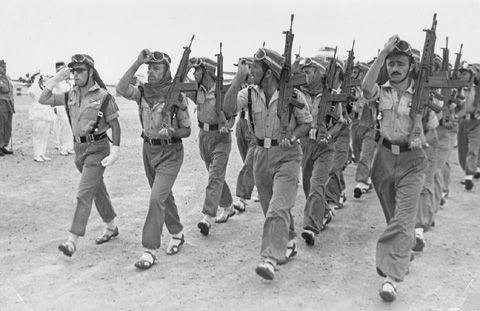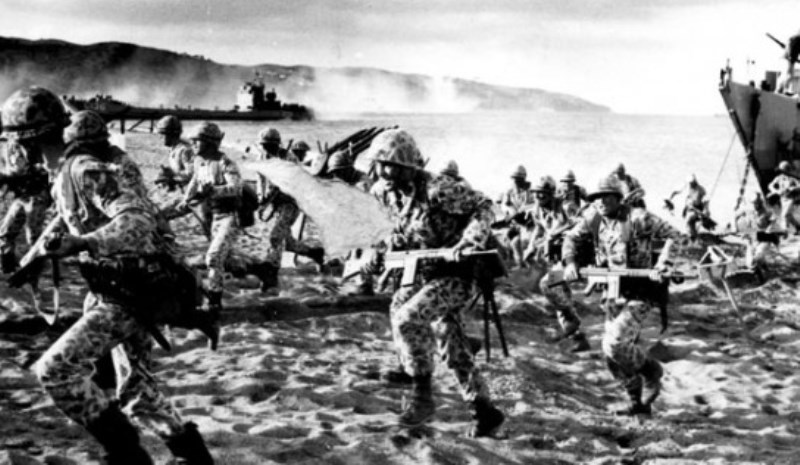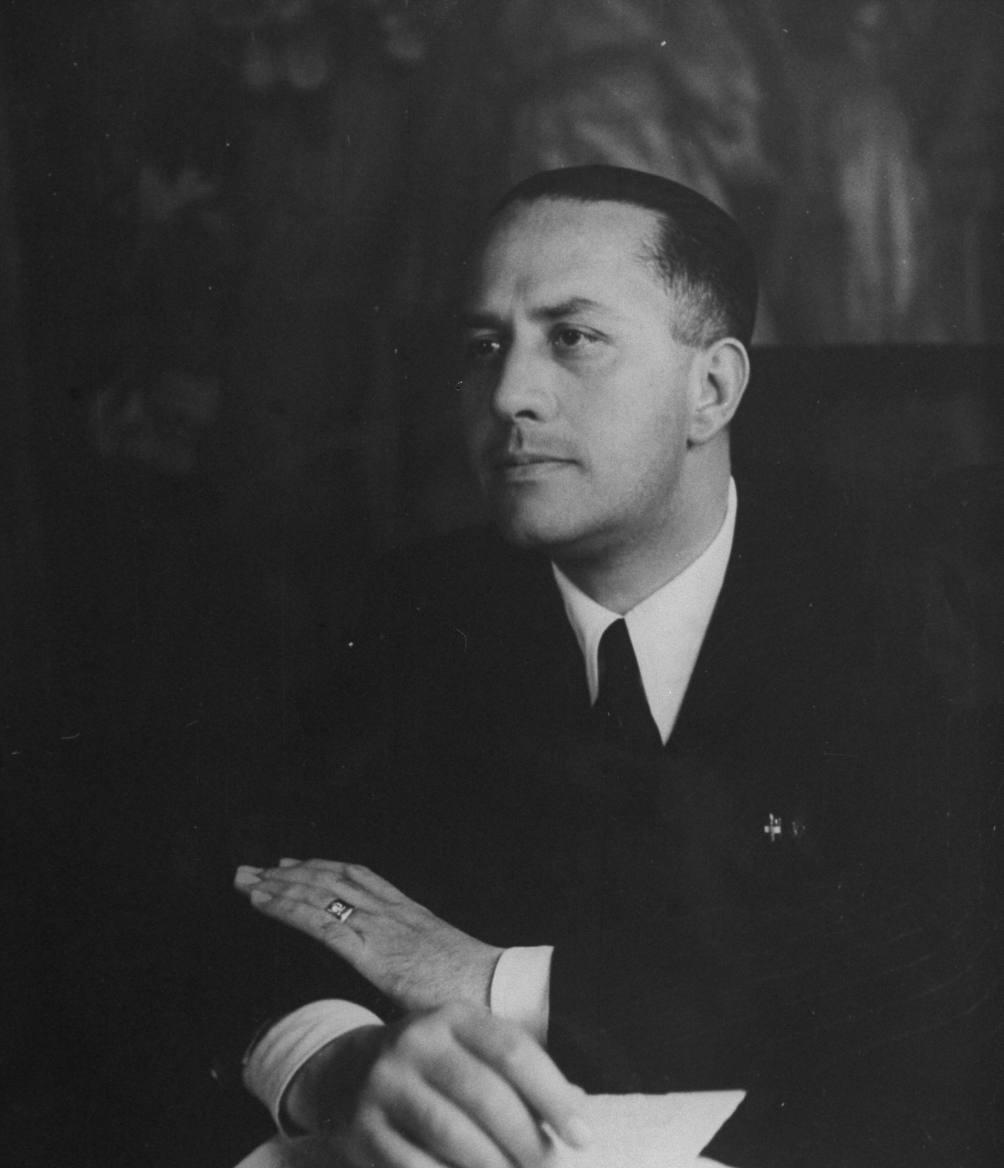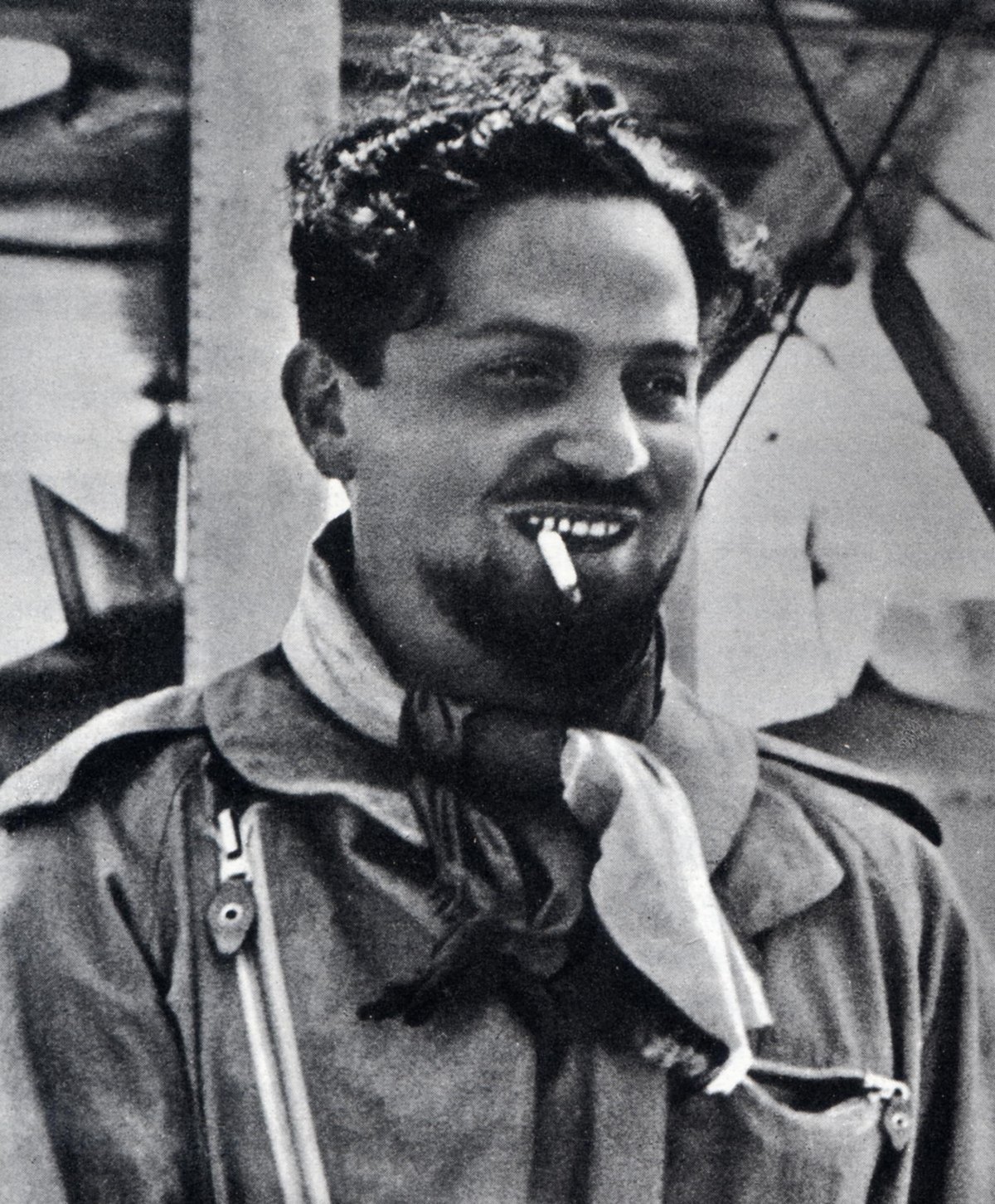A stalemate.Also should the Italo Turkish War end in Italian Victory or Defeat?
You are using an out of date browser. It may not display this or other websites correctly.
You should upgrade or use an alternative browser.
You should upgrade or use an alternative browser.
TNO Collabrative TL
- Thread starter President Earl Warren
- Start date
July 10, 1962: The Turks would send in waves and waves of conscripts against fortified Italian positions.
July 11, 1962: What it would see is a mass slaughter for the Italian Army had racked a high kill count.
July 12, 1962: The Italian Army would leave the Turkish Armies in a stalemate in the Levant with Turkish Forces unable to breakthrough without massive casualties.
July 13, 1962: In the PNF, there is debate as to how to proceed. Reformer Leader Ciano and Moderate Fascist Balbo want to go to the talking table with the Turks, Hardline Fascist Scorza wants to go into Turkey and take some territory. Meanwhile Ultra-Fascist Farinnaci wants to humiliate the "inferior" Turks for standing up to Fascist Italy's might.

Italian Soldiers training in Cyprus.

Italian Soldiers in Sicily prior to deploying in the Levant.

Italian Foreign Legion Soldiers in the Levant.

Turkish Soldiers charging Italian positions.

Turkish Nationalist Rallies in Ankara following Ciano's declaration of war.
July 11, 1962: What it would see is a mass slaughter for the Italian Army had racked a high kill count.
July 12, 1962: The Italian Army would leave the Turkish Armies in a stalemate in the Levant with Turkish Forces unable to breakthrough without massive casualties.
July 13, 1962: In the PNF, there is debate as to how to proceed. Reformer Leader Ciano and Moderate Fascist Balbo want to go to the talking table with the Turks, Hardline Fascist Scorza wants to go into Turkey and take some territory. Meanwhile Ultra-Fascist Farinnaci wants to humiliate the "inferior" Turks for standing up to Fascist Italy's might.

Italian Soldiers training in Cyprus.

Italian Soldiers in Sicily prior to deploying in the Levant.

Italian Foreign Legion Soldiers in the Levant.

Turkish Soldiers charging Italian positions.

Turkish Nationalist Rallies in Ankara following Ciano's declaration of war.
Last edited:
July 15, 1962: The corruption investigation continues and reveals several high ranking officials, including Prime Minister Ino himself to be in on it. A flurry of resignations ensues, and several candidates begin positioning themselves for the position of Japan's Prime Minister. The army and navy are divided, but the favorite of the Army seems to be Kaya, while the favorite of the Navy is Takagi. So far, Kaya, Takagi, and Ikeda have all announced their names in the running.
July 17, 1962: Heydrich's forces are tossed into disarray, with countless partisan groups among any germans in East Prussia causing trouble. Meanwhile, Goring's blitz against Bormann begins to stall, and Speer begins to push against Goring's forces from the left.
July 19, 1962: King Farouk I updates his vacation planner accordingly, and begins his lavish and utterly important hedonistic binges, much to the embarrassment of many of Italy's top government figures.
July 20, 1962: Several prominent members of the NPP and Democratic wing of the R-D party demand an investigation into Nixon's activities, while the civil rights debacle continues to grow worse. Much to Nixon's ire, his vice president secretly called for a meeting of civil rights leaders without informing him. All Nixon wants to do is focus on foreign policy and reelection, but it seems as though he can't do that without something else pops up.
July 17, 1962: Heydrich's forces are tossed into disarray, with countless partisan groups among any germans in East Prussia causing trouble. Meanwhile, Goring's blitz against Bormann begins to stall, and Speer begins to push against Goring's forces from the left.
July 19, 1962: King Farouk I updates his vacation planner accordingly, and begins his lavish and utterly important hedonistic binges, much to the embarrassment of many of Italy's top government figures.
July 20, 1962: Several prominent members of the NPP and Democratic wing of the R-D party demand an investigation into Nixon's activities, while the civil rights debacle continues to grow worse. Much to Nixon's ire, his vice president secretly called for a meeting of civil rights leaders without informing him. All Nixon wants to do is focus on foreign policy and reelection, but it seems as though he can't do that without something else pops up.
July 22, 1962: George Wallace criticizes Nixon for betraying the American people, even as rumors continue to circle about Wallace himself trying to obtain compromising material on the major members of the left wing of the NPP.
July 23, 1962: The ‘Southern Heritage Rally’ in Alabama becomes infamous on TV for the beating of a Black Muslim and the ‘Segregation Forever’ and ‘President Wallace Now’ chants.
July 23, 1962: The ‘Southern Heritage Rally’ in Alabama becomes infamous on TV for the beating of a Black Muslim and the ‘Segregation Forever’ and ‘President Wallace Now’ chants.
July 25th,1962: A Scandal leaks as it is revealed President Nixon covertly worked to kill the civil rights act which in public he was in favor of. This leads to widespread anger from Centrist NPPers and liberal Democratic Republicans. It also leads to the resignation of Robert F Kennedy from the position of Attorney General. He immediately becomes very popular with NPP Center voters and brings a team around himself.
July 27th,1962: After an ambiguous incident with Police shooting of a Black Teenager in Harlem, riots break out across the Country as this comes off of Nixons scuttling of the Civil Rights Bill.
July 27th,1962: After an ambiguous incident with Police shooting of a Black Teenager in Harlem, riots break out across the Country as this comes off of Nixons scuttling of the Civil Rights Bill.
July 17, 1962: As the Italo-Turkish War rages on, the Verona Conference begins. All Fascist Leaders in the PNF assemble for its a race against time for who will become next Duce.
The Verona Conference would prove to be chaotic. For Ciano, Balbo and Scorza, it would prove to be a tug of war. Many Fascists would be divided between supporting Moderate Fascist Balbo and Hardline Fascist Scorza, while Reformers would be divided betweem supporting the Reformer Ciano and the Moderate Fascist Balbo.
Roberto Farinnaci, despite his high ranking status, he would be left in the dust for his Pro-German and Nazi stance left him unpopular and a Pariah.

Ciano Galeazzo - Current Duce of Italy + Leader of the Reformist Faction of the PNF.

Italo Balbo - Leader of the Moderate Fascists Faction of the PNF

Carlo Scorza - Leader of the Hardline Fascists Faction of the PNF

Roberto Farinnaci - Leader of the Ultra-Fascists Faction of the PNF
The Verona Conference would prove to be chaotic. For Ciano, Balbo and Scorza, it would prove to be a tug of war. Many Fascists would be divided between supporting Moderate Fascist Balbo and Hardline Fascist Scorza, while Reformers would be divided betweem supporting the Reformer Ciano and the Moderate Fascist Balbo.
Roberto Farinnaci, despite his high ranking status, he would be left in the dust for his Pro-German and Nazi stance left him unpopular and a Pariah.

Ciano Galeazzo - Current Duce of Italy + Leader of the Reformist Faction of the PNF.

Italo Balbo - Leader of the Moderate Fascists Faction of the PNF

Carlo Scorza - Leader of the Hardline Fascists Faction of the PNF

Roberto Farinnaci - Leader of the Ultra-Fascists Faction of the PNF
July 18, 1962: Adopting Ferdinand Schorner's suggestions, Hermann Goering starts imposing mass conscription in areas of Germany controlled by the Wehrstaat (as Goering's militarist-dominated regime comes to be known as) with Goering's only option being to impose some minor limitations regarding technical experts, who are conscripted into non-combat roles only.July 17, 1962: Heydrich's forces are tossed into disarray, with countless partisan groups among any germans in East Prussia causing trouble. Meanwhile, Goring's blitz against Bormann begins to stall, and Speer begins to push against Goring's forces from the left.
Sorry Abit busy in IRL. Will get something up later@President Earl Warren, any events regarding the wider world and the GCW?
July 26, 1962: After a conference which lasts over a week, the Council of Verona reaches a decision with Farinacci (and his faction) finding himself effectively purged from the PNF for his pro-German and extremist stances while Ciano and Balbo emerging as the main "winners" of the Verona Council with Ciano maintaining his posts as Duce of the PNF and Prime Minister while Balbo becomes Defence Minister and Secretary of the PNF. With the diarchy of Ciano and Balbo in charge, reform in Italy is guaranteed with the only question being whether it leads to full democratization or simply a further liberalization of the fascist regime.July 17, 1962:
Last edited:
August 1, 1962: Civil rights activist Martin Luther King Jr. Makes a speech against both violence, going on hunger strike to end the violence.July 27th,1962: After an ambiguous incident with Police shooting of a Black Teenager in Harlem, riots break out across the Country as this comes off of Nixons scuttling of the Civil Rights Bill
July 22, 1962: A week into Japan's power struggle, Admiral Takagi, a known reformist, calling for less militarization of Japanese society (including more independence for the puppet states of the GEACPS), a thorough anti-corruption campaign, and economic policies favoring the "new breed" of keiretsu, is the front-runner for contention as Japan's next Prime Minister.July 15, 1962: The corruption investigation continues and reveals several high ranking officials, including Prime Minister Ino himself to be in on it. A flurry of resignations ensues, and several candidates begin positioning themselves for the position of Japan's Prime Minister. The army and navy are divided, but the favorite of the Army seems to be Kaya, while the favorite of the Navy is Takagi. So far, Kaya, Takagi, and Ikeda have all announced their names in the running.
Last edited:
July 16, 1962: SS forces of Reichsprotekorat Böhmen-Mähren converge on Prague, executing the Reichsprotektor and declaring SS-Ordenstaat Böhmen-Mähren. Arthur Nebe is declared leader of the new state.
July 28, 1962: Erich Koch, Reichskommissar of Ukraine, is assassinated. The same day, Alfred Frauenfeld becomes his successor.
August 1, 1962: Instability grows in Reichskommissariat Ukraine, as the OUN-B, the Cossacks and pre-war communist guerrillas all intensify their operations.
August 6, 1962: In South Africa, the army is called to crack down on the protesters in major cities such as Cape Town and Pretoria. They will do just that over the next week.
August 11, 1962: The infamous Cape Town massacre occurs, with the army shooting 300 innocent protesters.
August 13, 1962: The leadership of the African National Congress declares its opposition to the current regime, urging Africans to do whatever it takes to gain their freedom. This will be marked as the day the South African War began.
July 28, 1962: Erich Koch, Reichskommissar of Ukraine, is assassinated. The same day, Alfred Frauenfeld becomes his successor.
August 1, 1962: Instability grows in Reichskommissariat Ukraine, as the OUN-B, the Cossacks and pre-war communist guerrillas all intensify their operations.
August 6, 1962: In South Africa, the army is called to crack down on the protesters in major cities such as Cape Town and Pretoria. They will do just that over the next week.
August 11, 1962: The infamous Cape Town massacre occurs, with the army shooting 300 innocent protesters.
August 13, 1962: The leadership of the African National Congress declares its opposition to the current regime, urging Africans to do whatever it takes to gain their freedom. This will be marked as the day the South African War began.
Uh, I am afraid this must be retconned. As shown in the dev diary, the power struggle is not something resolved in a week. It is a complex, long process that will take months, if not more, as factions grow and weaken. Additionally, we haven't even started the Economic War.July 22, 1962: The Diet votes narrowly to elect Admiral Takagi as the new Prime Minister of Japan with Takagi, a known reformist, calling for less militarization of Japanese society (including more independence for the puppet states of the GEACPS), a thorough anti-corruption campaign, and economic policies favoring the "new breed" of keiretsu.
In addition to this, Alfred Frauenfeld's authority is far from secure within the Reichskommissariat's government as Theodor Oberlander and Alfred Rosenberg have strong power bases.July 28, 1962: Erich Koch, Reichskommissar of Ukraine, is assassinated. The same day, Alfred Frauenfeld becomes his successor.
August 1, 1962: Instability grows in Reichskommissariat Ukraine, as the OUN-B, the Cossacks and pre-war communist guerrillas all intensify their operations.
Edited accordingly so he's just the initial front-runner.Uh, I am afraid this must be retconned. As shown in the dev diary, the power struggle is not something resolved in a week. It is a complex, long process that will take months, if not more, as factions grow and weaken. Additionally, we haven't even started the Economic War.
July 24, 1962: Following days of a deadlock in the legislature, a new Prime Minister is decided on: Kiichi Aichi. His agenda: not very clear. The endless arguments between the different factions of liberals, conservatives, and reform bureaucrats, has resulted in a compromise of a PM who really seeks not much other than to survive. This marks the beginning of the interregnum.July 22, 1962: A week into Japan's power struggle, Admiral Takagi, a known reformist, calling for less militarization of Japanese society (including more independence for the puppet states of the GEACPS), a thorough anti-corruption campaign, and economic policies favoring the "new breed" of keiretsu, is the front-runner for contention as Japan's next Prime Minister.
July 28, 1962: Takagi's lead in the power struggle is significantly hit when a newspaper leaks significant scandals he was involved in, including receiving bribes.
July 29, 1962: As if things couldn't get worse, another crisis hits Japan. Following the leak of many scandals, the Yasuda zaibatsu comes tumbling down. In the stock market, all stocks on Yasuda are being sold at an alarming rate, while dozens of businessmen have committed suicide after seeing their fortune disappear in an instant.
August 2, 1962: upon further investigation by the tokkeitai, however, the newspaper leaks were fake, which was started by IJA.July 28, 1962: Takagi's lead in the power struggle is significantly hit when a newspaper leaks significant scandals he was involved in, including receiving bribes
August 5, 1962: Demonstrations began to sprawl out on the streets of Manila to demand complete exit of the Philippines from the GEACPS. Protesters began to carry the portraits of famous Philippine national heroes of Jose Rizal and Andres Bonifacio as they chanted about comparing the treatment of the Japanese to the Spaniards.
Share: